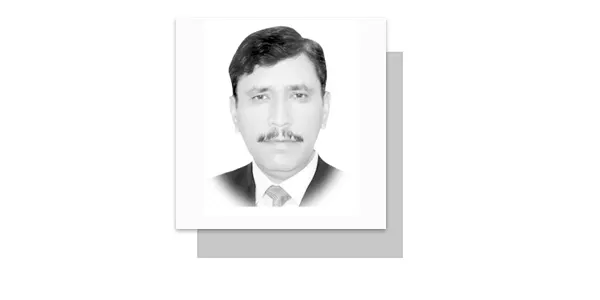AMID a turbulent landscape marked by pervasive inflation, daily protests have erupted. People express their anger over high taxes on electricity bills and relentless fuel price hikes. Meanwhile, tension escalates along the western border, further complicating the nation’s predicament. Not surprisingly, the interim government seems trapped in a situation that eerily echoes a previous episode when provincial elections in Punjab and Khyber Pakhtunkhwa were postponed due to the reluctance of Finance Ministry and the Interior Ministry to extend support to the Election Commission of Pakistan.
This tale of political and economic turmoil raises pertinent questions about the state of democracy in the nation both in terms of quality of leadership and degree of representation. The burden of inflation has grown to such an extent that it’s now unjustifiable within the context of a democratic system. There seems to be no rational explanation for its exacerbation, except for the elite’s reluctance to shoulder their rightful share of the fiscal responsibility during an unprecedented economic crisis.
The prospect of general elections looms on the horizon, but it appears increasingly elusive. The very constitutional fabric that underpins the electoral process seems fraught with fault lines, making the idea of holding elections at this juncture a potentially chaotic endeavour. In the face of these challenges, it is essential to delve deeper into the dynamics at play. The people’s discontent, manifesting through protests against skyrocketing electricity bills and fuel costs, reflects the growing strain on the population. They bear the brunt of economic policies and decisions that appear to favour the elite while imposing a heavy burden on ordinary citizens.
Beyond economic concerns, unrest simmers along the western border. This volatile situation raises additional security concerns and underscores the multifaceted challenges facing the nation. The confluence of economic distress and security risks paints a complex picture that demands careful consideration and decisive action. The roots of Pakistan’s current socio-economic challenges trace back to its history. The division of Punjab resulted in the relinquishment of control over vital eastern rivers, which had long nourished fertile lands. The partition of Bengal stripped away industrial bases, leaving the nation economically vulnerable. Feudalism has left an indelible mark on the country’s social fabric, persisting even after the Fall of Dhaka.
In recent years, democracy has witnessed several iterations, but its impact on the socio-economic structure has been limited. High expectations have often been derailed and the success of democracy since 2008 can largely be attributed to the utilization of funds from international organizations like the IMF for economic liberalization. Now, as the reckoning for the loans spent by ruling parties without proper accountability approaches, the elite have rallied to shift the burden onto ordinary citizens.
This elite consensus to marginalize the people in order to salvage the economy raises questions about the future. The discrediting of democracy as a solution to economic turmoil has prompted decision-makers to explore alternative avenues, such as selling national assets to attract foreign capital. However, this strategy faces significant obstacles, including the erosion of the country’s FDI potential due to targeted taxation of energy products and growing incidence of religious extremism. Another potential revenue source, tourism, remains underutilized due to the vested interests benefiting from the chaotic sectarian landscape and religious militancy. This deters foreign investors from considering Pakistan as a viable business destination.
Even before the COVID-19 pandemic disrupted global supply chains, the country had become excessively reliant on imports for essential goods that were traditionally produced domestically. The pandemic further exacerbated these vulnerabilities, forcing the nation to sell strategic wheat reserves to address balance of payment issues and service foreign loans. Navigating this intricate web of challenges necessitates a collective commitment to transparency, equitable policies and inclusive governance. When harnessed effectively, democracy can serve as a potent tool for addressing the profound socio-economic issues plaguing our society. At a time the very integrity of the state is threatened by self-serving elite, the insistence on the “same page” mantra appears bewildering. Equally confounding is the behaviour of the so-called neutral interim government, which is following the same path as the coalition government, with no special taxes on the rich, no austerity measures and no relenting in its accountability drive.
Unfortunately, the influence of a burgeoning aristocracy has become increasingly conspicuous. The wealthy elite have craftily amassed power through strategic collaborations and meticulous planning. This transformation was triggered by a wave of rudeness and misconduct by a political party, prompting the enforcement of colonial-era laws designed to suppress dissent. In an atmosphere fraught with fear and apprehension, additional taxes have been imposed on a populace already ensnared in the vicious cycle of hunger and disease. The path ahead may be arduous, but it is not insurmountable. All stakeholders, including the elite, must work together to prioritize the Pakistan’s dignified survival in a fast changing strategic milieu. The deepening polarization and the absence of a national consensus on policies and measures to rescue the economy from the brink of default underline the urgency of this collective effort.
The writer is politico-strategic analyst based in Islamabad.
Email: [email protected]










